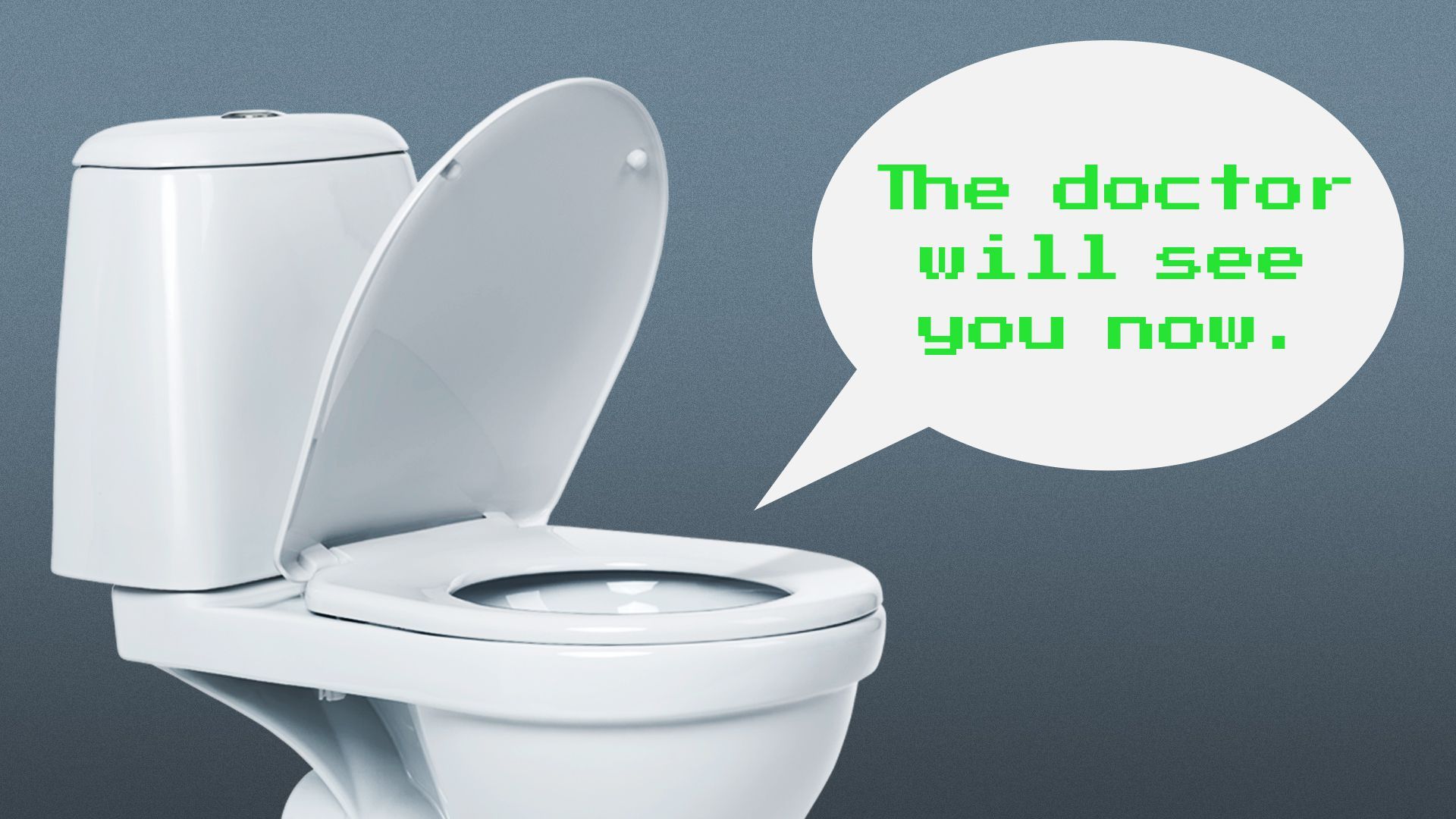Scoop: Casana nets $30 million to make smart toilet seats
Add Axios as your preferred source to
see more of our stories on Google.

Illustration: Shoshana Gordon/Axios
With $30 million in fresh funds, health monitoring startup Casana is readying to debut a toilet seat that takes your vitals.
Why it matters: Casana’s clinical commode is part of a broader trend that is seeing health care move out of the doctor’s office and into the home — or bathroom.
- “What is a potential game changer here is not the toilet seat itself but rather the opening of new distribution lanes and intermediaries for home health products,” Mintu Turakhia, director of the Stanford Center for Digital Health, tells Axios.
- While the first phase of the shift centered around wearables, the next chapter will likely involve ambient home sensors, Turakhia adds.
The details: Casana’s device, called the Heart Seat, uses three sensors (two of which are similar to those in Apple Watches) to get a peek at heart health and spot early problem signs, or to monitor someone with an existing heart condition.
- While an EKG is used to measure the heart’s electrical activity, photoplethysmography is deployed to detect blood volume changes with lights. A ballistocardiogram records tiny body movements caused by the heart’s mechanical activity.
- Nicholas Conn founded Casana in 2018 after developing an early version of the seat during his PhD work at the Rochester Institute of Technology.
By the numbers: The deal brings Casana’s total capital raised to $46 million.
- Morningside led the Series B fundraise, with Matrix, General Catalyst, Outsiders Fund and a large vertically-integrated health care provider participating.
- “This is far and away more money into toilet seats than anyone has ever dedicated in history,” the company’s chief executive officer, Austin McChord, tells Axios.
What’s next: New York-based Casana plans to submit its vitals-collecting latrine to the Food and Drug Administration for approval as a class two medical device in the first half of this year, McChord tells Erin.
Yes, but: It's unclear what the payment model for something like this would look like. While McChord says he hopes Medicare will front the cost of both the seat and a monthly subscription that lets doctors access its data, Turakhia isn't so sure.
- "I don’t see this being issued as part of remote patient monitoring which is reimbursed by Medicare," he says.
- Other examples of covered home blood pressure monitoring tools include those ordered by a doctor for single-use ambulatory blood pressure monitoring and for people who receive kidney dialysis at home — not quite the same kind of technology as a toilet seat meant for daily use.
The bottom line: Casana’s seat underscores the rising importance of ambient sensors that fade into the background while you take care of other business.
- "What I like about it is its passive monitoring," says Michael Snyder, director of the Stanford Center of Genomics and Personalized Medicine. "That’s a real plus."
Erin Brodwin co-authors our Axios Pro newsletter on health tech deals. Subscribe at AxiosPro.com.
